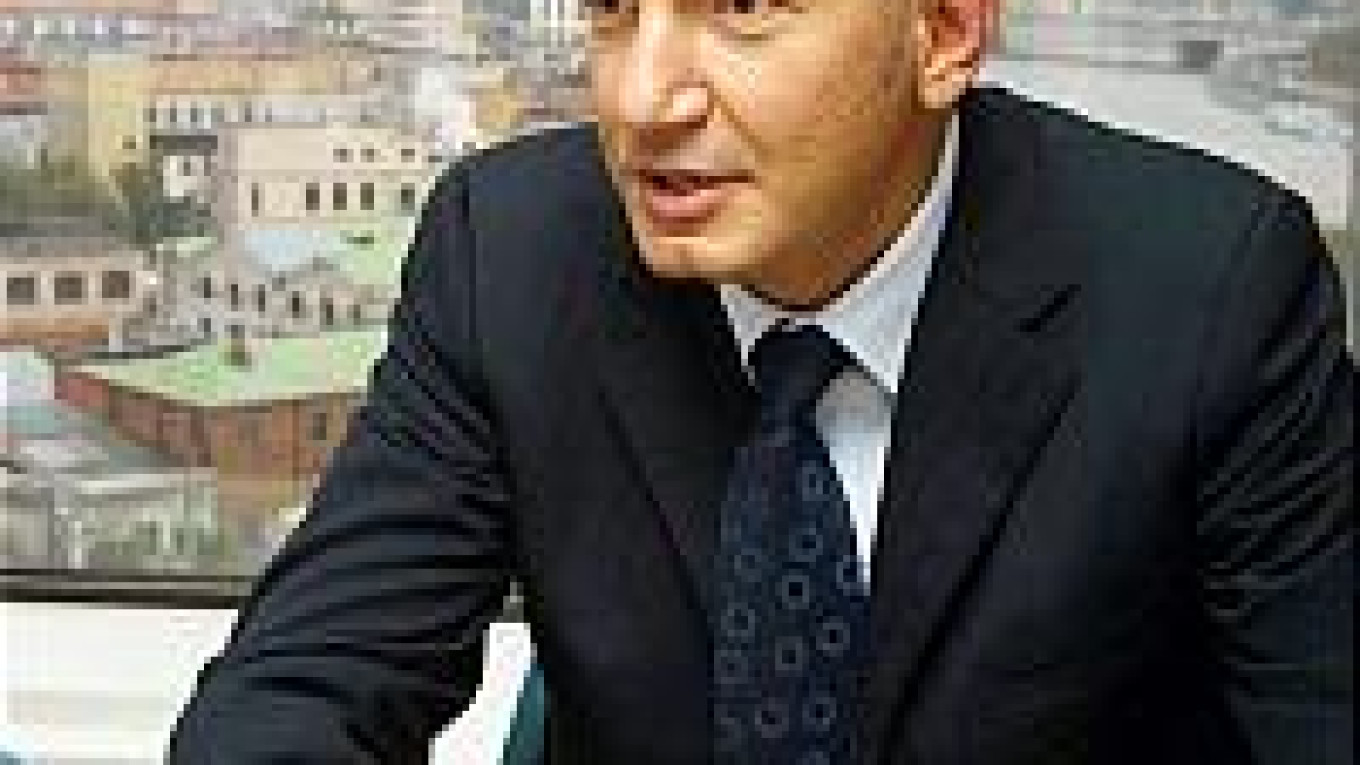Soyak has been on the Moscow market since the 1980s, but the Turkish company didn't get its first major building contract until Sengir, 42, accidentally bumped into some Coca-Cola executives in a hotel in 1993.
"I was staying at the Baltschug Kempinski," he recalled. "One day I met two gentlemen there, we introduced ourselves. I said I was a contractor."
"That's very interesting, we may have some work for you," Sengir remembered one of them saying.
One of the men was the CEO of Coca-Cola Russia, Sengir said, and the other was the soft-drink giant's head engineer for the Commonwealth of Independent States.
Three weeks later, Coca-Cola invited Soyak to participate in a tender to build a small drink plant in Volgograd. Soyak won the tender and later constructed a large drink factory in Krasnoyarsk and another in Samara.
Soyak earned its reputation among Western companies active in Russia thanks to the Coca-Cola projects, Sengir said. "It was an American multinational company with high demands."
Soyak later signed deals with PepsiCo, Kraft, Nestle, Philip Morris and Renault.
Soyak began operating in the Soviet Union in 1987, part of a government contract between Ankara and Moscow.
The company was to supply the Soviet Union with construction services as part of Turkey's payments on its energy debt.
Only a handful of companies were chosen to carry out such projects, Sengir said.
"The Soviet Union asked who the reliable Turkish companies were, the Turkish government named only five -- and we were one of them."
Soyak struck a deal with the state-owned Vneshstroiimport construction company to supply Soviet construction companies with materials from the West.
"We were in partnership for several years," Sengir said.
Soyak set up a representative office in the early 1990s and started bidding in tenders to build residential housing and military housing, but had little success until the Coca-Cola deal.
Sengir joined Soyak in 1985 after spending much of his life abroad.
He graduated from the Lycee de Saint Joseph, a French high school in his hometown of Istanbul.
"Naturally, after finishing a French education, I wanted to continue with some further studies in French language," he said.
Sengir entered the Ecole Polytechnique de Lausanne in Switzerland, to study mathematics. He then left for the University of Miami, where he earned a degree in civil engineering.
Sengir was reluctant to come to Russia before being named managing director of Soyak. Information about the country was scarce and what was available did not sound inviting, he said.
"But then I came here and saw that the people were friendly, helpful," he said. "It's not like what we used to know from Turkey."
Sengir also handles Soyak's projects in Ukraine, Algeria and Libya. The company has global turnover of around $1.2 billion per year.
Soyak is making another push to enter the Russian housing sector, Sengir said, but the company has run into obstacles.
The company specializes in building modern housing at affordable prices. It is difficult to find a site that suits Soyak's needs because land prices in Moscow are so high, Sengir said.
"We are still studying how we can get land under fair and reasonable terms with reasonable prices," he said.
"In Turkey we are considered medium-income people. If we are to invest we want to build flats for medium-income people, so we have to build economical projects," Sengir said.
"We can control our construction costs, but the land price -- this we cannot control."
Soyak is in contact with City Hall, and the company has been shown many plots, "but the price is too high," he said. "Whenever they name a price for the land, the negotiations stop there.
"You would have to sell the apartment for a minimum of $2,000 per square meter. We want to aim for a maximum of $900 or $1,000 per square meter," Sengir said.
Soyak, meanwhile, is building an office building for Philip Morris and is reconstructing a factory for Michelin.
Sengir said the Russian construction market shows promise and that he would like to build long-term relationships with local and international companies.
"We did not come to Russia for one or two projects, we want to invest here," he said.
A Message from The Moscow Times:
Dear readers,
We are facing unprecedented challenges. Russia's Prosecutor General's Office has designated The Moscow Times as an "undesirable" organization, criminalizing our work and putting our staff at risk of prosecution. This follows our earlier unjust labeling as a "foreign agent."
These actions are direct attempts to silence independent journalism in Russia. The authorities claim our work "discredits the decisions of the Russian leadership." We see things differently: we strive to provide accurate, unbiased reporting on Russia.
We, the journalists of The Moscow Times, refuse to be silenced. But to continue our work, we need your help.
Your support, no matter how small, makes a world of difference. If you can, please support us monthly starting from just $2. It's quick to set up, and every contribution makes a significant impact.
By supporting The Moscow Times, you're defending open, independent journalism in the face of repression. Thank you for standing with us.
Remind me later.


